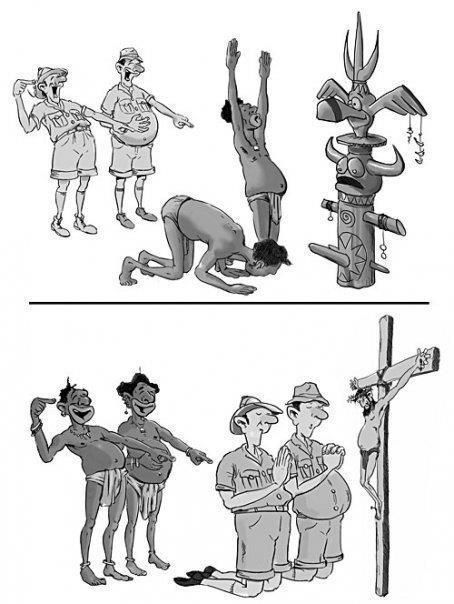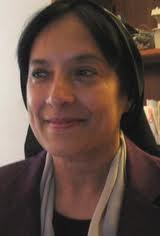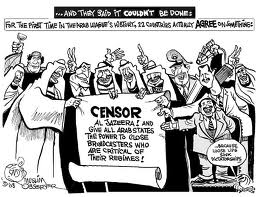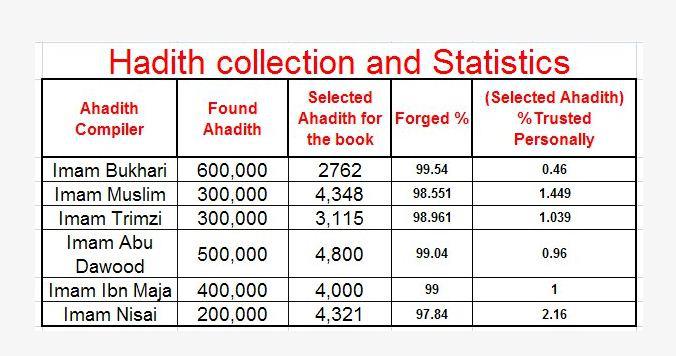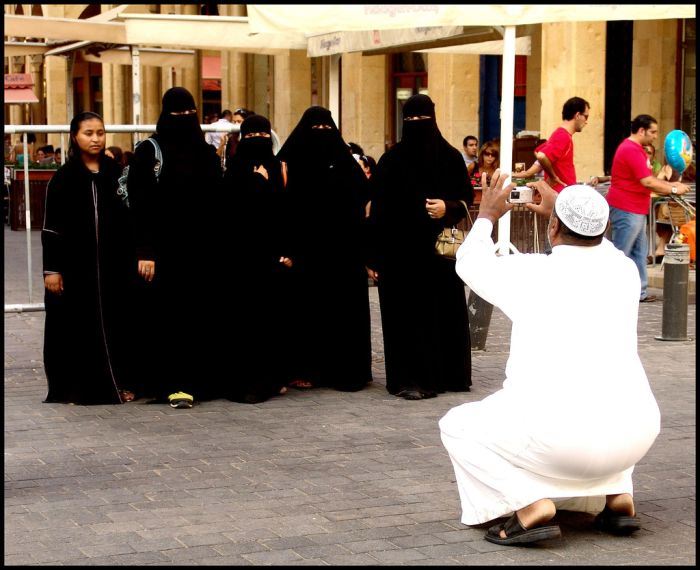The Best and Worst Places for Women
Sep 20, 2011

A scene from Divine Stone, directed by Hasan Mahmud, depicts the suffering of women under the sharia law. www.19.org
Newsweek/The Daily Beasty evaluated 165 countries according to their rights and quality of life in 5 categories: justice, health, education, economics and politics.
According to the Survey, the top 20 countries are:
1, Iceland
2, Sweden
3, Canada
4, Denmark
5, Finland
6, Switzerland
7, Norway
8, United States of America
9, Australia
10, Netherlands
11, New Zealand
12, France
13, Luxembourg
14, Portugal
15, Republic of Macedonia
16, Republic of Moldova
17, Philippines
18, Belgium
19, United Kingdom
20, Romania
With the exception of Albania 21, Kazakhstan 33 (about half muslim), and few other predominantly Sunni or Shiite countries which won their independence form former USSR about 20 years ago, almost none of the so-called Muslim countries made the top 100. Indoneisia 83, Kuwait 101; Jordan 110; Türkiye 114. Egypt 120, Algeria 115; Iran 125; Sudan 156; Pakistan 158; Yemen 163; and Afghanistan 164.
The bottom 20, that is the worst countries for women are:
146, Mauritania
147, Saudi Arabia
148, Central African Republic
149, Cameroon
150, Côte d’Ivoire
151, Benin
152, Guinea-Bissau
153, Nigeria
154, Sierra Leone
155, Guinea
156, Sudan
157, Ethiopia
158, Pakistan
159, Niger
160, Solomon Islands
161, Mali
162, Democratic Republic of the Congo
163, Yemen
164, Afghanistan
165, Chad
Here is the full list and the scores:
1, Iceland
Overall score (out of 100): 100.0
Justice: 100.0
Health: 90.5
Education: 96.7
Economics: 88.0
Politics: 92.8
2, Sweden
Overall score (out of 100): 99.2
Justice: 90.8
Health: 94.8
Education: 95.5
Economics: 90.3
Politics: 93.1
3, Canada
Overall score (out of 100): 96.6
Justice: 100.0
Health: 92.7
Education: 92.0
Economics: 91.0
Politics: 66.9
4, Denmark
Overall score (out of 100): 95.3
Justice: 86.1
Health: 94.9
Education: 97.6
Economics: 88.5
Politics: 78.4
5, Finland
Overall score (out of 100): 92.8
Justice: 80.2
Health: 91.4
Education: 91.3
Economics: 86.8
Politics: 100.0
6, Switzerland
Overall score (out of 100): 91.9
Justice: 87.9
Health: 94.4
Education: 97.3
Economics: 82.6
Politics: 74.6
7, Norway
Overall score (out of 100): 91.3
Justice: 79.3
Health: 100.0
Education: 74.0
Economics: 93.5
Politics: 93.9
8, United States of America
Overall score (out of 100): 89.8
Justice: 82.9
Health: 92.8
Education: 97.3
Economics: 83.9
Politics: 68.6
9, Australia
Overall score (out of 100): 88.2
Justice: 80.7
Health: 93.3
Education: 93.9
Economics: 85.3
Politics: 65.1
10, Netherlands
Overall score (out of 100): 87.7
Justice: 74.0
Health: 95.0
Education: 99.0
Economics: 83.0
Politics: 68.4
11, New Zealand
Overall score (out of 100): 87.2
Justice: 72.0
Health: 87.5
Education: 93.3
Economics: 87.5
Politics: 78.2
12, France
Overall score (out of 100): 87.2
Justice: 100.0
Health: 94.7
Education: 95.0
Economics: 72.3
Politics: 62.0
13, Luxembourg
Overall score (out of 100): 87.1
Justice: 100.0
Health: 90.8
Education: 95.0
Economics: 75.5
Politics: 56.2
14, Portugal
Overall score (out of 100): 86.8
Justice: 100.0
Health: 92.7
Education: 90.4
Economics: 74.0
Politics: 67.6
15, Republic of Macedonia
Overall score (out of 100): 86.4
Justice: 83.5
Health: 92.1
Education: 95.4
Economics: 83.4
Politics: 51.2
16, Republic of Moldova
Overall score (out of 100): 86.3
Justice: 88.7
Health: 91.5
Education: 95.9
Economics: 80.3
Politics: 53.1
17, Philippines
Overall score (out of 100): 86.3
Justice: 88.4
Health: 57.0
Education: 92.2
Economics: 89.1
Politics: 85.6
18, Belgium
Overall score (out of 100): 85.2
Justice: 73.1
Health: 96.5
Education: 92.5
Economics: 79.6
Politics: 78.2
19, United Kingdom
Overall score (out of 100): 85.0
Justice: 79.5
Health: 91.7
Education: 95.9
Economics: 81.6
Politics: 57.0
20, Romania
Overall score (out of 100): 85.0
Justice: 92.3
Health: 90.2
Education: 94.9
Economics: 79.1
Politics: 45.5
21, Albania
Overall score (out of 100): 84.6
Justice: 84.8
Health: 99.3
Education: 99.0
Economics: 82.4
Politics: 21.4
22, Ireland
Overall score (out of 100): 84.5
Justice: 89.8
Health: 86.2
Education: 93.1
Economics: 81.0
Politics: 51.0
23, China
Overall score (out of 100): 84.4
Justice: 92.2
Health: 99.2
Education: 100.0
Economics: 73.2
Politics: 36.7
24, Slovenia
Overall score (out of 100): 84.2
Justice: 100.0
Health: 94.3
Education: 95.7
Economics: 70.3
Politics: 47.9
25, Latvia
Overall score (out of 100): 84.1
Justice: 73.1
Health: 89.9
Education: 93.9
Economics: 82.7
Politics: 67.9
26, Trinidad and Tobago
Overall score (out of 100): 84.1
Justice: 83.5
Health: 70.0
Education: 96.8
Economics: 80.6
Politics: 80.1
27, Greece
Overall score (out of 100): 83.8
Justice: 100.0
Health: 94.7
Education: 94.4
Economics: 70.5
Politics: 47.6
28, Estonia
Overall score (out of 100): 83.5
Justice: 73.1
Health: 90.8
Education: 96.3
Economics: 83.7
Politics: 53.2
29, Croatia
Overall score (out of 100): 83.5
Justice: 92.7
Health: 93.7
Education: 98.2
Economics: 72.1
Politics: 46.9
30, Germany
Overall score (out of 100): 83.4
Justice: 74.0
Health: 94.7
Education: 96.8
Economics: 78.2
Politics: 62.7
31, Slovakia
Overall score (out of 100): 83.2
Justice: 87.5
Health: 92.0
Education: 95.9
Economics: 78.2
Politics: 41.4
32, Mongolia
Overall score (out of 100): 82.7
Justice: 76.8
Health: 91.3
Education: 96.1
Economics: 77.4
Politics: 62.8
33, Kazakhstan
Overall score (out of 100): 82.5
Justice: 79.9
Health: 82.6
Education: 98.8
Economics: 81.8
Politics: 46.7
34, Belarus
Overall score (out of 100): 82.4
Justice: 71.7
Health: 93.1
Education: 98.4
Economics: 78.0
Politics: 60.6
35, Poland
Overall score (out of 100): 81.4
Justice: 81.7
Health: 88.2
Education: 96.9
Economics: 72.0
Politics: 67.4
36, Costa Rica
Overall score (out of 100): 81.0
Justice: 74.2
Health: 71.6
Education: 96.1
Economics: 83.4
Politics: 66.6
37, Singapore
Overall score (out of 100): 80.8
Justice: 84.5
Health: 84.1
Education: 87.3
Economics: 84.1
Politics: 42.7
38, Rwanda
Overall score (out of 100): 80.4
Justice: 70.2
Health: 51.5
Education: 77.1
Economics: 99.3
Politics: 90.3
39, Bahamas
Overall score (out of 100): 80.2
Justice: 73.1
Health: 67.8
Education: 94.3
Economics: 91.2
Politics: 45.4
40, Kyrgyzstan
Overall score (out of 100): 79.9
Justice: 69.1
Health: 80.2
Education: 97.4
Economics: 81.3
Politics: 60.3
41, Guyana
Overall score (out of 100): 79.8
Justice: 100.0
Health: 58.0
Education: 91.0
Economics: 77.2
Politics: 64.1
42, Cyprus
Overall score (out of 100): 79.6
Justice: 100.0
Health: 84.5
Education: 97.3
Economics: 71.1
Politics: 27.0
43, Armenia
Overall score (out of 100): 79.5
Justice: 85.6
Health: 83.8
Education: 99.3
Economics: 76.7
Politics: 31.3
44, Spain
Overall score (out of 100): 79.4
Justice: 73.1
Health: 88.7
Education: 96.9
Economics: 69.9
Politics: 78.0
45, Vietnam
Overall score (out of 100): 79.3
Justice: 82.5
Health: 86.2
Education: 91.5
Economics: 75.3
Politics: 55.4
46, Ukraine
Overall score (out of 100): 79.0
Justice: 88.3
Health: 89.5
Education: 97.5
Economics: 67.8
Politics: 50.1
47, Cape Verde
Overall score (out of 100): 78.8
Justice: 90.7
Health: 71.7
Education: 89.0
Economics: 75.8
Politics: 63.3
48, Malta
Overall score (out of 100): 78.6
Justice: 100.0
Health: 71.7
Education: 94.4
Economics: 74.4
Politics: 36.2
49, Austria
Overall score (out of 100): 78.2
Justice: 73.1
Health: 93.4
Education: 90.1
Economics: 72.0
Politics: 70.2
50, Bulgaria
Overall score (out of 100): 78.0
Justice: 73.1
Health: 88.7
Education: 93.0
Economics: 76.5
Politics: 53.8
51, Israel
Overall score (out of 100): 78.0
Justice: 73.1
Health: 81.6
Education: 97.2
Economics: 80.5
Politics: 41.0
52, Georgia
Overall score (out of 100): 77.9
Justice: 84.3
Health: 78.5
Education: 95.4
Economics: 77.0
Politics: 39.9
53, Mexico
Overall score (out of 100): 77.5
Justice: 100.0
Health: 75.5
Education: 93.8
Economics: 69.2
Politics: 43.0
54, Paraguay
Overall score (out of 100): 77.5
Justice: 79.9
Health: 63.6
Education: 90.5
Economics: 83.7
Politics: 57.1
55, South Africa
Overall score (out of 100): 77.1
Justice: 84.6
Health: 62.9
Education: 88.0
Economics: 79.7
Politics: 66.7
56, Cuba
Overall score (out of 100): 77.0
Justice: 81.2
Health: 86.4
Education: 95.9
Economics: 63.5
Politics: 74.9
57, Turkmenistan
Overall score (out of 100): 76.4
Justice: 60.0
Health: 83.6
Education: 99.4
Economics: 85.1
Politics: 31.4
58, Uzbekistan
Overall score (out of 100): 76.4
Justice: 66.4
Health: 88.1
Education: 95.8
Economics: 81.0
Politics: 34.3
59, Italy
Overall score (out of 100): 76.1
Justice: 83.2
Health: 94.9
Education: 95.8
Economics: 62.7
Politics: 54.3
60, Russia
Overall score (out of 100): 75.9
Justice: 76.4
Health: 92.7
Education: 96.9
Economics: 69.8
Politics: 42.2
61, Namibia
Overall score (out of 100): 75.9
Justice: 70.2
Health: 75.7
Education: 85.1
Economics: 84.1
Politics: 57.8
62, Lithuania
Overall score (out of 100): 75.9
Justice: 56.6
Health: 92.2
Education: 95.5
Economics: 79.6
Politics: 49.4
63, Argentina
Overall score (out of 100): 75.5
Justice: 95.0
Health: 55.2
Education: 98.5
Economics: 72.3
Politics: 49.9
64, Burundi
Overall score (out of 100): 74.9
Justice: 82.2
Health: 20.1
Education: 57.6
Economics: 100.0
Politics: 70.2
65, Thailand
Overall score (out of 100): 74.8
Justice: 73.8
Health: 81.6
Education: 92.5
Economics: 78.9
Politics: 35.3
66, Uruguay
Overall score (out of 100): 74.8
Justice: 84.4
Health: 69.9
Education: 97.5
Economics: 71.6
Politics: 48.0
67, Bosnia and Herzegovina
Overall score (out of 100): 74.2
Justice: 88.3
Health: 86.4
Education: 96.4
Economics: 66.8
Politics: 29.2
68, Venezuela
Overall score (out of 100): 73.8
Justice: 89.5
Health: 44.7
Education: 92.8
Economics: 78.6
Politics: 57.0
69, Peru
Overall score (out of 100): 73.5
Justice: 81.6
Health: 64.9
Education: 88.0
Economics: 79.9
Politics: 44.2
70, Fiji
Overall score (out of 100): 73.5
Justice: 78.8
Health: 81.4
Education: 96.2
Economics: 61.5
Politics: 71.1
71, Jamaica
Overall score (out of 100): 72.8
Justice: 76.6
Health: 71.6
Education: 90.8
Economics: 69.9
Politics: 68.7
72, Czech Republic
Overall score (out of 100): 72.7
Justice: 61.7
Health: 93.2
Education: 96.9
Economics: 71.3
Politics: 43.6
73, Botswana
Overall score (out of 100): 72.3
Justice: 74.7
Health: 46.6
Education: 91.5
Economics: 87.5
Politics: 44.6
74, Sri Lanka
Overall score (out of 100): 72.3
Justice: 77.1
Health: 73.2
Education: 95.1
Economics: 77.9
Politics: 22.3
75, Honduras
Overall score (out of 100): 72.1
Justice: 79.7
Health: 54.7
Education: 90.9
Economics: 73.6
Politics: 72.2
76, Tunisia
Overall score (out of 100): 71.7
Justice: 79.0
Health: 85.8
Education: 86.9
Economics: 73.8
Politics: 28.9
77, Azerbaijan
Overall score (out of 100): 71.7
Justice: 75.1
Health: 76.1
Education: 95.6
Economics: 79.2
Politics: 12.7
78, Dominican Republic
Overall score (out of 100): 70.5
Justice: 78.6
Health: 64.6
Education: 87.1
Economics: 77.6
Politics: 41.4
79, Panama
Overall score (out of 100): 69.9
Justice: 77.5
Health: 59.4
Education: 90.6
Economics: 73.3
Politics: 55.9
80, Republic of Korea
Overall score (out of 100): 69.6
Justice: 76.1
Health: 92.9
Education: 91.9
Economics: 66.0
Politics: 25.9
81, Malaysia
Overall score (out of 100): 69.5
Justice: 82.6
Health: 72.0
Education: 89.8
Economics: 74.0
Politics: 22.3
82, Brunei Darussalam
Overall score (out of 100): 69.0
Justice: 46.2
Health: 66.8
Education: 94.6
Economics: 88.9
Politics: 33.6
83, Indonesia
Overall score (out of 100): 68.9
Justice: 67.5
Health: 61.9
Education: 87.5
Economics: 78.5
Politics: 53.0
84, Brazil
Overall score (out of 100): 68.5
Justice: 80.7
Health: 61.7
Education: 88.0
Economics: 71.7
Politics: 48.5
85, Cambodia
Overall score (out of 100): 68.3
Justice: 87.4
Health: 55.0
Education: 65.6
Economics: 89.6 32.0
86, Timor-Leste
Overall score (out of 100): 68.3
Justice: 72.4
Health: 37.1
Education: 89.1
Economics: 82.0
Politics: 62.8
87, Japan
Overall score (out of 100): 68.0
Justice: 73.5
Health: 85.8
Education: 88.3
Economics: 69.7
Politics: 26.9
88, Mauritius
Overall score (out of 100): 67.6
Justice: 85.9
Health: 70.6
Education: 92.3
Economics: 65.1
Politics: 31.5
89, Lesotho
Overall score (out of 100): 66.7
Justice: 48.1
Health: 38.4
Education: 96.4
Economics: 86.5
Politics: 65.8
90, Colombia
Overall score (out of 100): 66.7
Justice: 74.2
Health: 72.8
Education: 95.5
Economics: 61.4
Politics: 50.8
91, Myanmar
Overall score (out of 100): 66.5
Justice: 67.9
Health: 49.5
Education: 94.0
Economics: 87.9
Politics: 7.5
92, Maldives
Overall score (out of 100): 66.4
Justice: 59.9
Health: 67.5
Education: 95.6
Economics: 79.9
Politics: 18.5
93, Tajikistan
Overall score (out of 100): 66.4
Justice: 47.5
Health: 76.9
Education: 91.9
Economics: 80.8
Politics: 33.2
94, Chile
Overall score (out of 100): 65.8
Justice: 81.9
Health: 57.9
Education: 92.1
Economics: 66.6
Politics: 42.9
95, Ghana
Overall score (out of 100): 65.5
Justice: 64.7
Health: 51.3
Education: 72.4
Economics: 89.9
Politics: 47.3
96, Nicaragua
Overall score (out of 100): 65.4
Justice: 70.1
Health: 58.3
Education: 76.9
Economics: 71.0
Politics: 82.8
97, Qatar
Overall score (out of 100): 64.8
Justice: 19.3
Health: 73.6
Education: 98.0
Economics: 98.9
Politics: 4.3
98, Belize
Overall score (out of 100): 64.7
Justice: 73.1
Health: 60.2
Education: 92.8
Economics: 69.7
Politics: 37.0
99, Haiti
Overall score (out of 100): 64.2
Justice: 64.4
Health: 41.4
Education: 92.2
Economics: 81.0
Politics: 41.4
100, El Salvador
Overall score (out of 100): 64.0
Justice: 73.8
Health: 63.2
Education: 82.3
Economics: 70.6
Politics: 47.4
101, Kuwait
Overall score (out of 100): 62.9
Justice: 64.6
Health: 80.7
Education: 93.7
Economics: 65.8
Politics: 19.9
102, Bahrain
Overall score (out of 100): 62.2
Justice: 48.0
Health: 86.8
Education: 87.5
Economics: 71.2
Politics: 33.9
103, Ecuador
Overall score (out of 100): 61.8
Justice: 67.9
Health: 64.3
Education: 87.6
Economics: 63.8
Politics: 54.7
104, Bolivia
Overall score (out of 100): 61.2
Justice: 76.2
Health: 53.2
Education: 86.5
Economics: 62.9
Politics: 57.9
105, Gabon
Overall score (out of 100): 61.1
Justice: 36.1
Health: 44.0
Education: 87.6
Economics: 93.3
Politics: 39.5
106, Bhutan
Overall score (out of 100): 60.2
Justice: 69.8
Health: 60.9
Education: 77.2
Economics: 75.8
Politics: 26.7
107, Zimbabwe
Overall score (out of 100): 60.1
Justice: 58.1
Health: 38.5
Education: 89.6
Economics: 80.7
Politics: 38.6
108, Gambia
Overall score (out of 100): 59.8
Justice: 43.9
Health: 45.1
Education: 66.3
Economics: 100.0
Politics: 38.6
109, United Arab Emirates
Overall score (out of 100): 59.6
Justice: 46.2
Health: 73.5
Education: 93.6
Economics: 68.0
Politics: 39.0
110, Jordan
Overall score (out of 100): 59.3
Justice: 66.0
Health: 79.4
Education: 92.4
Economics: 60.3
Politics: 19.2
111, Madagascar
Overall score (out of 100): 58.0
Justice: 64.5
Health: 38.5
Education: 62.3
Economics: 89.4
Politics: 44.7
112, Hungary
Overall score (out of 100): 58.0
Justice: 19.3
Health: 91.9
Education: 96.9
Economics: 70.2
Politics: 36.0
113, People’s Democratic Republic of Lao
Overall score (out of 100): 57.4
Justice: 56.9
Health: 30.0
Education: 62.6
Economics: 94.7
Politics: 48.9
114, Turkey
Overall score (out of 100): 56.2
Justice: 64.4
Health: 87.8
Education: 84.8
Economics: 54.2
Politics: 28.0
115, Algeria
Overall score (out of 100): 55.5
Justice: 62.9
Health: 76.8
Education: 72.2
Economics: 71.1
Politics: 12.0
116, Kenya
Overall score (out of 100): 53.6
Justice: 50.2
Health: 44.6
Education: 85.7
Economics: 75.2
Politics: 30.1
117, Liberia
Overall score (out of 100): 52.8
Justice: 42.4
Health: 34.5
Education: 57.9
Economics: 90.2
Politics: 68.1
118, Malawi
Overall score (out of 100): 51.9
Justice: 49.9
Health: 26.1
Education: 61.6
Economics: 93.3
Politics: 40.7
119, United Republic of Tanzania
Overall score (out of 100): 51.9
Justice: 44.6
Health: 17.1
Education: 69.9
Economics: 90.7
Politics: 55.6
120, Egypt
Overall score (out of 100): 51.9
Justice: 67.2
Health: 69.6
Education: 67.7
Economics: 63.6
Politics: 29.3
121, Lebanon
Overall score (out of 100): 50.7
Justice: 43.7
Health: 73.9
Education: 91.1
Economics: 56.2
Politics: 32.9
122, Uganda
Overall score (out of 100): 50.7
Justice: 32.2
Health: 22.4
Education: 61.4
Economics: 95.8
Politics: 65.0
123, Oman
Overall score (out of 100): 50.6
Justice: 48.5
Health: 71.2
Education: 86.1
Economics: 61.4
Politics: 20.1
124, Morocco
Overall score (out of 100): 50.4
Justice: 81.2
Health: 72.2
Education: 57.9
Economics: 61.6
Politics: 17.8
125, Iran
Overall score (out of 100): 50.1
Justice: 54.9
Health: 77.9
Education: 76.8
Economics: 62.2
Politics: 12.1
126, Suriname
Overall score (out of 100): 48.4
Justice: 46.2
Health: 55.1
Education: 87.0
Economics: 61.5
Politics: 33.8
127, Zambia
Overall score (out of 100): 47.5
Justice: 40.1
Health: 29.7
Education: 67.4
Economics: 85.7
Politics: 38.9
128, Mozambique
Overall score (out of 100): 47.3
Justice: 42.5
Health: 32.8
Education: 41.4
Economics: 92.6
Politics: 64.4
129, Swaziland
Overall score (out of 100): 46.0
Justice: 49.8
Health: 30.5
Education: 78.1
Economics: 66.8
Politics: 51.7
130, Syrian Arab Republic
Overall score (out of 100): 45.8
Justice: 45.6
Health: 67.7
Education: 83.1
Economics: 56.0
Politics: 26.4
131, Eritrea
Overall score (out of 100): 44.5
Justice: 43.6
Health: 39.2
Education: 52.9
Economics: 86.1
Politics: 29.4
132, Libyan Arab Jamahiriya
Overall score (out of 100): 44.3
Justice: 55.9
Health: 72.3
Education: 86.5
Economics: 47.1
Politics: 12.6
133, Nepal
Overall score (out of 100): 43.5
Justice: 44.3
Health: 48.7
Education: 68.4
Economics: 67.2
Politics: 37.8
134, Burkina Faso
Overall score (out of 100): 43.4
Justice: 47.0
Health: 33.0
Education: 44.5
Economics: 90.7
Politics: 28.3
135, Senegal
Overall score (out of 100): 43.2
Justice: 60.5
Health: 36.4
Education: 43.3
Economics: 76.8
Politics: 47.8
136, Guatemala
Overall score (out of 100): 43.0
Justice: 61.6
Health: 42.0
Education: 65.2
Economics: 63.0
Politics: 33.6
137, Togo
Overall score (out of 100): 42.7
Justice: 37.6
Health: 41.8
Education: 46.7
Economics: 87.5
Politics: 34.7
138, Equatorial Guinea
Overall score (out of 100): 42.6
Justice: 45.9
Health: 36.8
Education: 87.8
Economics: 62.5
Politics: 19.8
139, Bangladesh
Overall score (out of 100): 42.1
Justice: 35.5
Health: 45.7
Education: 69.2
Economics: 75.1
Politics: 20.4
140, Papua New Guinea
Overall score (out of 100): 42.0
Justice: 57.6
Health: 56.7
Education: 47.4
Economics: 75.5
Politics: 7.7
141, India
Overall score (out of 100): 41.9
Justice: 54.0
Health: 64.1
Education: 64.9
Economics: 60.7
Politics: 14.8
142, Angola
Overall score (out of 100): 41.1
Justice: 41.2
Health: 20.0
Education: 42.8
Economics: 87.4
Politics: 61.1
143, Congo
Overall score (out of 100): 40.5
Justice: 18.2
Health: 34.7
Education: 63.7
Economics: 86.1
Politics: 35.4
144, Djibouti
Overall score (out of 100): 40.4
Justice: 19.3
Health: 37.2
Education: 63.2
Economics: 85.1
Politics: 33.0
145, Serbia
Overall score (out of 100): 38.4
Justice: 82.8
Health: 86.7
Education: 96.4
Economics: 56.2
Politics: 44.2
146, Mauritania
Overall score (out of 100): 38.0
Justice: 43.3
Health: 39.0
Education: 71.5
Economics: 61.4
Politics: 32.8
147, Saudi Arabia
Overall score (out of 100): 35.5
Justice: 40.6
Health: 68.1
Education: 79.6
Economics: 47.8
Politics: 5.0
148, Central African Republic
Overall score (out of 100): 34.3
Justice: 46.7
Health: 16.6
Education: 20.7
Economics: 95.3
Politics: 34.0
149, Cameroon
Overall score (out of 100): 33.1
Justice: 34.4
Health: 31.7
Education: 57.8
Economics: 72.6
Politics: 21.8
150, Côte d’Ivoire
Overall score (out of 100): 30.9
Justice: 50.6
Health: 30.4
Education: 33.1
Economics: 68.2
Politics: 50.5
151, Benin
Overall score (out of 100): 30.0
Justice: 43.6
Health: 43.6
Education: 21.0
Economics: 74.7
Politics: 42.3
152, Guinea-Bissau
Overall score (out of 100): 29.9
Justice: 26.1
Health: 31.0
Education: 34.6
Economics: 83.0
Politics: 34.3
153, Nigeria
Overall score (out of 100): 29.3
Justice: 54.8
Health: 37.2
Education: 35.9
Economics: 66.2
Politics: 21.1
154, Sierra Leone
Overall score (out of 100): 29.0
Justice: 22.2
Health: 38.0
Education: 30.9
Economics: 88.2
Politics: 14.9
155, Guinea
Overall score (out of 100): 28.5
Justice: 25.7
Health: 40.7
Education: 29.7
Economics: 79.1
Politics: 35.6
156, Sudan
Overall score (out of 100): 26.1
Justice: 21.1
Health: 29.4
Education: 70.6
Economics: 54.5
Politics: 40.8
157, Ethiopia
Overall score (out of 100): 23.7
Justice: 18.6
Health: 27.2
Education: 29.9
Economics: 79.7
Politics: 37.4
158, Pakistan
Overall score (out of 100): 21.4
Justice: 49.7
Health: 49.6
Education: 34.0
Economics: 50.7
Politics: 19.3
159, Niger
Overall score (out of 100): 21.2
Justice: 26.5
Health: 32.9
Education: 47.5
Economics: 58.6
Politics: 31.3
160, Solomon Islands
Overall score (out of 100): 20.8
Justice: 0.0
Health: 53.6
Education: 86.5
Economics: 46.0
Politics: 1.9
161, Mali
Overall score (out of 100): 17.6
Justice: 22.7
Health: 29.9
Education: 25.8
Economics: 64.3
Politics: 49.8
162, Democratic Republic of the Congo
Overall score (out of 100): 13.6
Justice: 6.5
Health: 11.4
Education: 45.1
Economics: 67.8
Politics: 27.2
163, Yemen
Overall score (out of 100): 12.1
Justice: 36.2
Health: 44.4
Education: 34.1
Economics: 48.8
Politics: 0.0
164, Afghanistan
Overall score (out of 100): 2.0
Justice: 8.4
Health: 2.0
Education: 41.1
Economics: 55.3
Politics: 16.6
165, Chad
Overall score (out of 100): 0.0
Justice: 20.7
Health: 0.0
Education: 0.0
Economics: 70.9
Politics: 22.2






